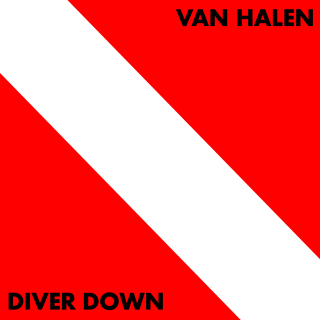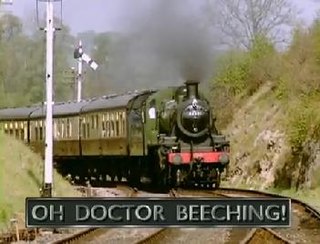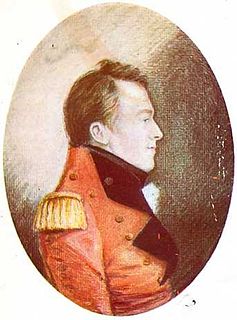Related Research Articles
Newfoundland English is a term refrring to any of several accents and dialects of Atlantic Canadian English found in the province of Newfoundland and Labrador. Most of these differ substantially from the English commonly spoken elsewhere in Canada and North America. Many Newfoundland dialects are influenced by the dialects of England's West Country, in particular the city of Bristol and the counties of Cornwall, Devon, Dorset, Hampshire and Somerset, while in terms of general cultural heritage, one estimate claims 80 to 85 percent of Newfoundland's English heritage came from England's southwest. Other Newfoundland dialects are influenced by the dialects of Ireland's southeastern counties, particularly Waterford, Wexford, Kilkenny and Cork. Still others blend elements of both and there is also a discernible influence of Scottish English. This reflects the fact that while the Scottish came in smaller numbers than the English and Irish, they had a large influence on Newfoundland society.

County Clare is a county in Ireland, in the Mid-West Region and the province of Munster, bordered on the west by the Atlantic Ocean. Clare County Council is the local authority. The county had a population of 118,817 at the 2016 census. The county town and largest settlement is Ennis.

The West Clare Railway (WCR) originally operated in County Clare, Ireland, between 1887 and 1961. This 3 ft narrow-gauge railway ran from the county town of Ennis, via numerous stopping-points along the West Clare coast to two termini, at Kilrush and Kilkee, with the routes diverging at Moyasta Junction. The system was the last operating narrow gauge passenger system in Ireland and connected with the mainline rail system at Ennis, where a station still stands today for bus and train services to Limerick and Galway. Intermediate stops included Ennistymon, Lahinch and Milltown Malbay.

Kilkee is a small coastal town in County Clare, Ireland. It is in the parish of Kilkee, formerly Kilfearagh. Kilkee is midway between Kilrush and Doonbeg on the N67 road. The town is popular as a seaside resort. The horseshoe bay is protected from the Atlantic Ocean by the Duggerna Reef.

Kilrush is a coastal town in County Clare, Ireland. It is also the name of a civil parish and an ecclesiastical parish in Roman Catholic Diocese of Killaloe. It is located near the mouth of the River Shannon in the south-west of the county. Kilrush is one of the listed Heritage Towns of Ireland. The area was officially classified as part of the West Clare Gaeltacht, an Irish-speaking community, until 1956.

Diver Down is the fifth studio album by American hard rock band Van Halen and was released on April 14, 1982. It spent 65 weeks on the album chart in the United States and had, by 1998, sold four million copies in the United States.
The lyrics to the song The Mountains of Mourne were written by Irish musician Percy French (1854–1920), the music was composed by Houston Collisson (1865–1920). Another theory is that it is based on the traditional Irish folk tune "Carrigdonn" or "Carrigdhoun". The latter was the same tune used by Thomas Moore (1779–1852) for his song Bendemeer's Stream.

Oh, Doctor Beeching! is a BBC television sitcom written by David Croft and Richard Spendlove which, after a broadcast pilot on 14 August 1995, ran for two series from 8 July 1996, with the last episode being broadcast on 28 September 1997. The series is notable for being the last in a series of three comedies by co-writer David Croft to use many of the same actors, starting with Hi-de-Hi! and followed by You Rang, M'Lord? and was also the last full series written by David Croft.

Bungi is a creole language of Scottish English, the Orcadian dialect of Scots, Scottish Gaelic, French, Norn, Cree, and Ojibwe (Saulteaux). It was spoken by the Scottish Red River Métis in present-day Manitoba, Canada.
"Johnny I Hardly Knew Ye", also known as "Johnny We Hardly Knew Ye" or "Johnny I Hardly Knew Ya", is a popular traditional song, sung to the same tune as "When Johnny Comes Marching Home". First published in London in 1867 and written by Joseph B. Geoghegan, a prolific English songwriter and successful music hall figure, it remained popular in Britain and Ireland and the United States into the early years of the 20th century. The song was recorded by The Clancy Brothers & Tommy Makem on their eponymous album in 1961, leading to a renewal of its popularity.

The Toreador is an Edwardian musical comedy in two acts by James T. Tanner and Harry Nicholls, with lyrics by Adrian Ross and Percy Greenbank and music by Ivan Caryll and Lionel Monckton. It opened at the Gaiety Theatre in London, managed by George Edwardes, on 17 June 1901 and ran for an extremely successful 675 performances. It starred Marie Studholme, Gertie Millar, Harry Grattan, Edmund Payne, George Grossmith, Jr. and the young Sidney Bracy. Gabrielle Ray later joined the cast. The show also enjoyed Broadway runs in 1902 and 1904 and toured internationally.
Johnston's Motor Car is an Irish rebel song written by Willie Gillespie based on the commandeering in Ulster of a motor car belonging to Doctor Henry Maturin Johnston (1851-1932) by the Irish Republican Army (IRA).
Spancil Hill, or in original spelling Spancilhill, is a traditional Irish folk ballad composed by Michael Considine (1850–73), who was born in Spancil Hill and migrated to the US. It bemoans the plight of the Irish emigrants who so longed for home from their new lives in America. This song is sung by a man who longs for his home in Spancill Hill, County Clare, his friends and the love he left there. All the characters and places in this song are real.
Russian traditions, superstitions and beliefs include superstitions and customs of Russians. Many of them are now inseparable parts of everyday life, or simply common social etiquette, though they often have their origins in superstition. Awareness of them, and their perceived importance, depends on various factors including region and age. Some are extremely common and practiced by the vast majority of the population, while some are extremely obscure and could be more regionally

Killaloe is the Regimental Quick March of the British Army regiment, The Royal Irish Regiment. It has informal, historical associations with other Irish Regiments and Brigades: as an unofficial march by the Connaught Rangers and Royal Inniskilling Fusiliers and at brigade level in World War II by the 38th (Irish) Infantry Brigade. It is also the regimental march of the South African Irish Regiment.
Lord Saltoun and Auchanachie, is a Scottish folk song.
”Clapham Town End” is an old Yorkshire folk song which was harmonised by the English composer Edward Elgar in 1890.

"The Bold Canadian" was a patriotic song for Canadians that originated during the War of 1812. It celebrated the conquering of Detroit in Michigan Territory.
The Clare's Regiment, later known as Clare's Dragoons, was initially named O'Brien's Regiment after its originator Daniel O'Brien, 3rd Viscount Clare raised a mounted dragoon regiment during the Jacobite war. When Clare's Dragoons left Limerick with the Flight of the Wild Geese they became a regiment of infantry. Clare's Dragoons remained loyal to the dethroned James II of England and fought against the army of William III of England, during the Williamite War in Ireland.
References
- 1 2 French, Percy. "Are Ye Right There Michael". King Laoghaire: The Home of Irish Ballads and Tunes. Retrieved 2013-02-24.
- ↑ "Percy French (1854 - 1920)". Clare County Library, Ireland. Retrieved 2013-02-24.